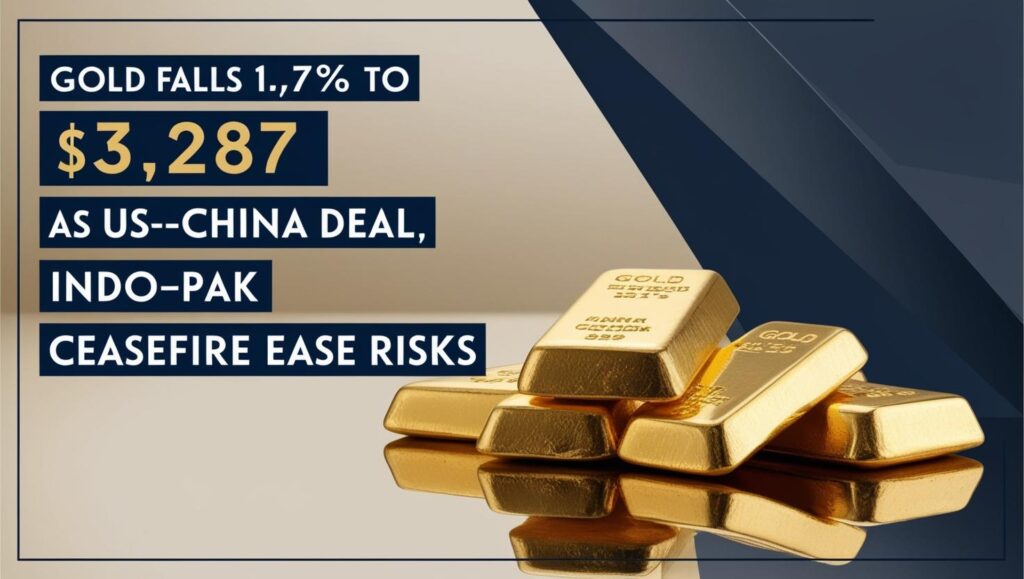Gold prices slumped on Monday as investor appetite shifted away from safe havens amid signs of improving global stability. Spot gold fell 1.3% to $3,283.04 an ounce, while June gold futures dropped 1.7% to $3,287.90 in early Asian trade. The decline comes as the White House announced a breakthrough in trade negotiations with China, sparking a rally in equity markets and weighing heavily on bullion.
The trade agreement, though lacking specific terms, signals an end to months of escalating tariffs. U.S. Treasury Secretary Scott Bessent and Trade Representative Jamieson Greer confirmed a consensus was reached during talks in Geneva over the weekend. Chinese media also hinted at a formal joint statement expected Monday.
Just weeks ago, President Trump imposed 145% tariffs on Chinese imports, prompting Beijing to respond with 125% levies of its own. However, the recent détente—paired with a pledge to reduce tariffs to 80%—has cooled tensions and reduced safe-haven demand for gold.
Additionally, a 0.3% jump in the U.S. Dollar Index further pressured precious metals, making them less attractive to foreign investors.
Broader Metals Market Reflects Shift
Gold’s decline mirrored losses across the broader precious metals market. As investors embraced riskier assets, other traditionally defensive commodities lost momentum.
Key movements include:
- Platinum futures down 0.2% to $1,000.50/oz
- Silver futures down 0.5% to $32.758/oz
- Copper futures rose 0.4% in London to $9,483.60/ton
- U.S. copper futures gained 0.5% to $4.6755/pound
The rise in industrial metals, particularly copper, reflects market optimism that easing trade barriers will boost demand from top importer China, providing a tailwind for economic recovery and infrastructure investment.
Indo-Pak Ceasefire Cools Geopolitical Fears
Gold also faced downward pressure from easing geopolitical concerns in South Asia. A U.S.-brokered ceasefire between India and Pakistan has held for over 36 hours, reducing fears of further escalation along the Kashmir border.
Although brief accusations of ceasefire violations emerged on Saturday, military activity has since de-escalated. The U.S. has offered to mediate the Kashmir dispute, a gesture welcomed by Islamabad but left unacknowledged by New Delhi.
This stabilization, combined with easing trade tensions, has significantly reduced demand for gold as a hedge against uncertainty. Investors now await the full text of the U.S.-China trade deal, set for release later today, for further clarity on global risk dynamics.


